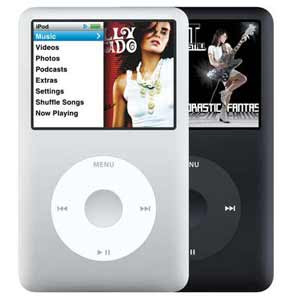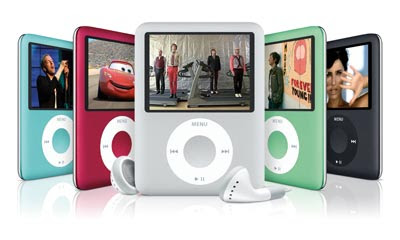In 2001, Apple introduced the iPod, an MP3 player with the unheard-of storage capacity of 5 gigabytes. Six iPod generations later, the iPod plays songs, movies, games and photo slideshows, and you can store up to 160 GB of any type of file you want. The evolution has been a lesson in consumer electronics marketing and development: Millions of people are so hooked on the iPod, they continue to buy it and its coordinating Apple products despite quick battery death and difficult repairs.
The 2007 iPod release, the sixth-generation iPod classic, is a digital audio player, video player, photo viewer and portable hard drive, making it a full-fledged portable media center. It's available in 80-GB and 160-GB capacities and has a color LCD screen. In addition to the iPod classic, there are several other devices in the current generation of iPod players:

iPod touch, announced in September 2007, is a touch-screen iPod with an 8-GB or 16-GB capacity. It looks a lot like an iPhone, and it uses the iPhone's multi-touch user interface. You can learn all about the technology in How the iPhone Works.
iPod shuffle, with a 1-GB capacity, plays only songs and has no display.
iPod nano plays digital audio, displays digital photos and comes in 4- and 8-GB capacities. It has a 2-inch display screen and a smaller form factor than the iPod video.
The newer iPod nano model has a larger screen.


No comments:
Post a Comment